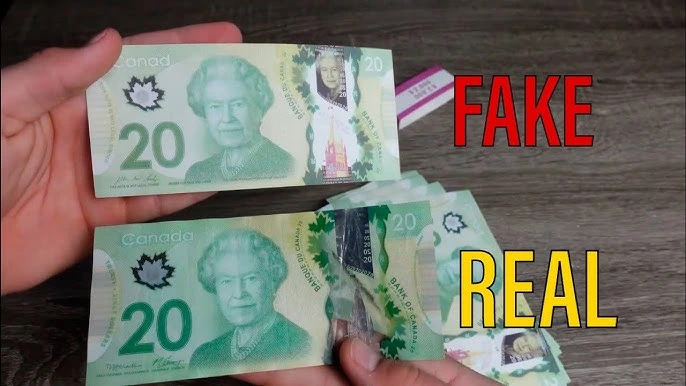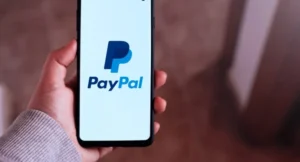
Prop money, also known as fake or replica currency, is widely used in movies, music videos, training sessions, and advertising. While it looks like real money, it is intentionally different in various ways to avoid confusion or illegal use. This article dives deep into the world of prop money, exploring its legality, features, common uses, and how you can purchase and use it safely without breaking the law.
What is Prop Money?
Prop money refers to fake currency designed to resemble real money but is intended strictly for use in entertainment, promotions, and training purposes. You’ve likely seen it in your favorite films, TV shows, or music videos where large sums of money are thrown around. Though it might look like real cash, it is specifically crafted to ensure it can’t be mistaken for actual currency.
What Makes Prop Money Different from Real Money?
There are clear visual and physical distinctions between prop money and real currency. Here are some of the significant differences:
Visual Markings
Most prop money is labeled with terms like “For Motion Picture Use Only” or “Replica” to avoid confusion with actual currency. These markings are usually printed on both sides of the bill and are required by law to prevent it from being mistaken for legal tender.
Size and Color
Prop money is often slightly smaller or larger than real money, and the color might be less vibrant to indicate it is not genuine. Some bills may feature faded colors or altered designs on key parts of the notes to further distinguish them.
Paper Quality
Real money is printed on a specific blend of cotton and linen to make it durable. Prop money, however, is usually printed on ordinary paper or lower-quality materials, making it feel different when touched.

Is It Legal to Buy and Use Prop Money?
U.S. Federal Laws on Prop Money
In the United States, it is legal to buy and use prop money as long as it is not used to deceive others into thinking it’s real. The key is that the money must be distinctly different from real currency in specific ways, such as size, color, and clear markings like “For Motion Picture Use Only.”
According to federal law, as long as these distinctions are maintained, using or possessing prop money is not considered a crime. However, most U.S. states have laws making it illegal to attempt to pass off prop money as real currency.
Conditions for Legal Use
Legal uses for prop money include:
- Movies and Television Productions: Prop money is used to enhance the realism of a scene.
- Music Videos: It provides a flashy aesthetic without the need for real cash.
- Training Sessions: Businesses may use it for training employees on money handling.
- Promotions and Advertising: It is sometimes used in marketing materials to attract attention.
Legal Penalties for Misuse of Prop Money
If someone tries to use prop money as real currency, this is considered fraud and can result in serious legal penalties. Fines, criminal charges, and even imprisonment can result from attempting to pass prop money as real in a commercial setting.
For example, in several U.S. states, individuals have been prosecuted for using prop money in illegal ways. It is crucial to stay informed about the laws in your state or country to avoid legal consequences.
Most Popular Uses of Prop Money
Prop money has a wide range of uses, but some of the most common include:
Entertainment Industry
Movies, television shows, and music videos are the biggest consumers of prop money. Scenes involving bank robberies, cash-filled suitcases, or flashy music video sequences typically use prop money. Since it looks real from a distance, it helps create a believable visual while maintaining legality.
Advertising and Promotions
Brands often use prop money in commercials, product promotions, or social media campaigns to grab attention. Whether they throw fake cash around in a fun ad or lay it out as part of a visual backdrop, it adds flair without the risk of losing real money.
Corporate Training
Some companies use prop money to train employees on handling cash, counting bills, and identifying counterfeit money. This is especially useful in industries where cash transactions are common, such as retail or banking.
Where to Buy Prop Money Safely
Trusted Vendors
If you’re in the market for prop money, it’s important to purchase from reputable vendors. Trusted sources like Prop Movie Money and PropMoney.info ensure that their products meet legal requirements, such as having distinct visual markings and different dimensions from real currency.
When buying prop money, look for the following to ensure it is legal:
- Clear “For Motion Picture Use Only” markings.
- Size and color differences from real currency.
- Paper quality that feels different from real money.
How to Avoid Illegal Sellers
Not all prop money sellers are legitimate. Some counterfeit sellers may provide fake money that is too similar to real currency, which can get you into legal trouble. Always verify the credibility of the seller and ensure they follow legal guidelines for making and selling prop money.

Frequently Asked Questions (FAQs) About Prop Money
Can Prop Money Be Mistaken for Real Currency?
When correctly designed to meet legal standards (clear markings, size differences), prop money is unlikely to be mistaken for real money. However, improper designs can create issues.
Is It Legal to Own Prop Money?
Yes, as long as the prop money is clearly marked and not used to deceive, it is legal to own in most countries. Check local regulations to ensure compliance.
How Much Does Prop Money Cost?
Prices for prop money vary depending on the quality and quantity. For basic prop bills used in low-budget productions, prices can be as low as a few dollars for a bundle. High-quality prop money for professional films may cost more.
Can You Use Prop Money in Public?
While you can possess prop money, using it in public without disclosing that it’s fake can lead to legal complications, especially if someone mistakes it for real currency. Always be transparent about its purpose when using it outside of film sets or private events.
Common Myths About Prop Money
Myth 1: All Prop Money Is Illegal
One of the most widespread misconceptions is that all fake currency is illegal. This is false; as long as prop money is distinct from real currency and not used for illegal purposes, it is perfectly legal.
Myth 2: Prop Money Can Be Used to Trick People
Using prop money to deceive others is illegal and punishable by law. Authentic prop money should never be used to commit fraud or pass off as real cash.
Consequences of Misusing Prop Money
Using prop money fraudulently can lead to severe legal penalties, including:
- Fines: You may face steep financial penalties for attempting to pass off fake money as real.
- Imprisonment: In some cases, misusing prop money can result in jail time, especially in fraud cases.
- Criminal Record: A criminal record can have long-term consequences, affecting your ability to find work or travel.
Case Example: In some high-profile fraud cases, individuals tried using prop money in stores or banks, only to be caught and prosecuted for counterfeiting.
Conclusion
Prop money serves a vital purpose in the entertainment and promotional industries, providing a realistic yet safe way to simulate cash without using real currency. However, it’s essential to understand the legal boundaries to ensure you use it correctly and avoid any legal repercussions.
By buying from legitimate sellers and using prop money in legal contexts like films, training sessions, and advertising, you can enjoy its benefits without crossing legal lines. Always ensure that the prop money is clearly marked, distinct from real currency, and never used to deceive.
Stay informed, follow the law, and enjoy the flexibility prop money offers for your creative projects or professional needs!







